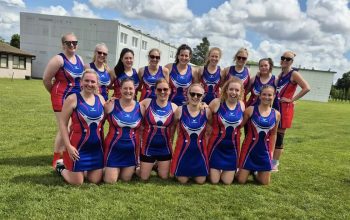Schools in Kingston and Richmond took part in a groundbreaking Racial Justice in Education Care Conference on February 2 to address racial inequalities in schools.
The conference, hosted by the non-profit company Achieving for Children (AFC), came after the latest data presented by the Department for Education (DFE) highlighted that Black children and young people in the boroughs were disproportionately represented in data sets such as low attainment scores and high exclusion rates.
AFC school improvement advisor for Black, Asian and minority ethnic (BAME) achievement Dr Kathryn Kashyap said: “There is always work to be done on inequalities, and race and ethnicity are key factors whatever the numbers of pupils concerned.”
The online virtual event featured a plethora of in-depth workshops and training programmes for the 80 delegates and 46 schools that attended to help them understand the particular issues faced by Black pupils.
Dr Kashyap added: “I think a really big thing to celebrate is that we actually came together and focused on that particular issue.
“There is training going on all the time about different issues to do with inequalities around race and ethnicity but in terms of actually having a big focus, that was a really positive step forward.”
Chief executive of the Kingston Race and Equalities Council (KREC) John Azah, who opened the conference with an address, said: “I think it’s worth noting that I’ve been in the borough for a long time.
“This is the first time anybody, any organisation or individuals, has been courageous enough to say they want to organise a racial justice conference and that it was accepted as something we can do.”
The statistics
The fixed period exclusion rate for Black pupils in Kingston (5.60) in 2018/19 was significantly higher than for any other major ethnic group and higher than the national rate (5.54), according to data published by the DFE.
Fixed period exclusions, also known as temporary exclusions, can be exclusions for up to 45 days and calculated as a percentage of the total exclusions per 100 pupils who registered in January for the academic year.
Nineteen of the 33 London local authorities also presented a fixed period exclusion rate higher than the national rate for Black pupils.
Speaking last year concerning the 2017/18 statistics, former education spokesperson for the Liberal Democrats Layla Moran said: “It is a glaring injustice that Black pupils growing up across the country are so much more likely to be excluded from school than their peers.”
Despite the total number of Black pupils temporarily excluded in Kingston being low (46) compared to white pupils (325), the rate was more than double the rate for white pupils.
GCSE attainment scores were also unequal after Black students generated the lowest average score out of the major ethnic groups in Kingston (47.1) and Richmond (47.6) for 2018/19.
This is nearly 10 scores lower than the total pupil attainment average in both Kingston (56.9) and Richmond (54.1).
However, Kingston and Richmond still presented a higher average attainment score than the national rate (45.2) covering all areas across England, which was the lowest across all major ethnic groups.
Kashyap said: “I think the important thing about the data, and it’s not to minimise our commitment to issues locally, is that this is a huge national problem.”
Not just a “one-off”
During the Kingston Council’s online ‘Let’s Talk About Race’ discussion in October, parent and team manager for an adult social care team in Kingston Rachel Lukwago spoke about the lack of BAME representation in teaching roles.
She said: “If you have a school that’s got children from BAME backgrounds and there’s not even one teacher from the BAME background, not even a pastor-teacher, I think for me there’s an issue there.”
Kashyap said it was “vital” to talk to children and parents to understand their background experiences and perspectives.
Following the conference, AFC said it would work with the schools, the KREC and other organisations to ensure that racial justice is pursued.
Azah said: “Clearly I think we need to continue to encourage organisations such as AFC to continue to shine a light on where there is lack of attainment within these communities, schools and in colleges.”
Kashyap said the focus now is to monitor and track the progress within schools and rolling out a development programme to go deeper on the issues discussed.
She added: “The whole point of the conference is that it isn’t just a one-off. It’s a focus because of the particular needs that are then ongoing and that we’re all training, learning and developing as we go through.”






